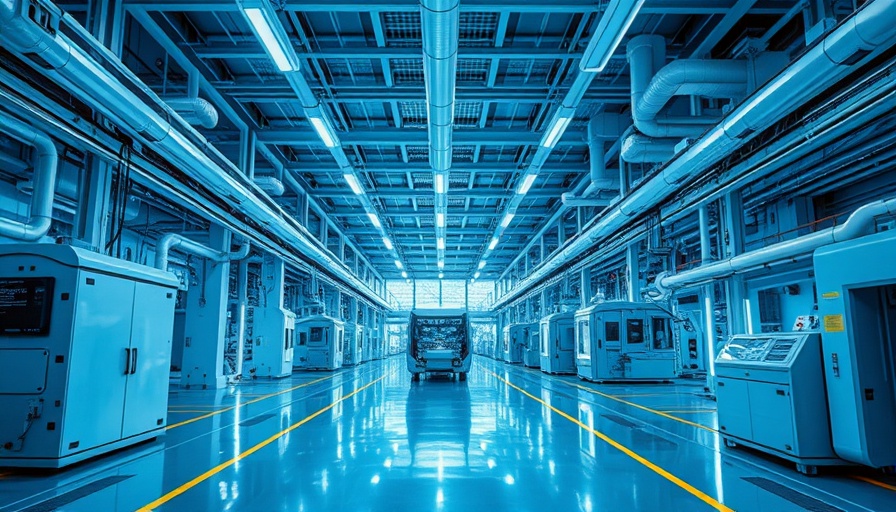
The Revolution of Smart Manufacturing in Industry
Smart manufacturing is transforming the landscape of industrial operations, leading to unprecedented efficiencies and opportunities for innovation. It encompasses advanced technologies that integrate systems and optimize production processes. At the heart of this transformation lies the Internet of Things (IoT), which connects machines and devices, allowing them to communicate and work synergistically. This smart interconnectedness is not just about convenience; it significantly enhances productivity and reduces downtime, giving businesses a competitive edge in a global market.
The Competitive Edge: How Smart Manufacturing Benefits Businesses
With businesses under pressure to deliver quicker and more customized products, companies that embrace smart manufacturing technologies can respond with agility. Automation reduces human labor costs and error rates, while digital systems offer insights into supply chain dynamics and customer preferences. By utilizing Artificial Intelligence (AI), manufacturers can forecast demand better and maintain high standards of quality control, thus shaping a more efficient production line and driving revenue growth.
Challenges and Risks in Adopting Smart Manufacturing
Despite its advantages, the transition to smart manufacturing is fraught with challenges. High initial investments in technology can deter smaller organizations from making the leap. Additionally, the lack of skilled labor to manage and maintain advanced systems can pose significant risks. Companies must balance innovation with careful planning and investment in workforce training to ensure safe and effective operations.
Global Trends Shaping Smart Manufacturing
As nations contend with evolving economic landscapes, initiatives like Germany’s Industry 4.0 and China’s 'Made in China 2025' indicate a global shift towards smart manufacturing. Countries are recognizing the need for sustainable practices that not only enhance operational efficiency but also lower their environmental footprint. This is reshaping competitive dynamics on a global scale, urging all manufacturers to evaluate their technological roadmaps.
Conclusion: The Future of Manufacturing is Now
The world of manufacturing is changing rapidly, and businesses that adapt to these trends stand to benefit immensely. Understanding the intricacies of smart manufacturing can empower stakeholders, from lenders to brokers, to make informed decisions. Now is the time for businesses to leverage these advancements, ensuring they remain relevant and profitable in an increasingly tech-driven marketplace.
 Add Row
Add Row  Add
Add 




Write A Comment